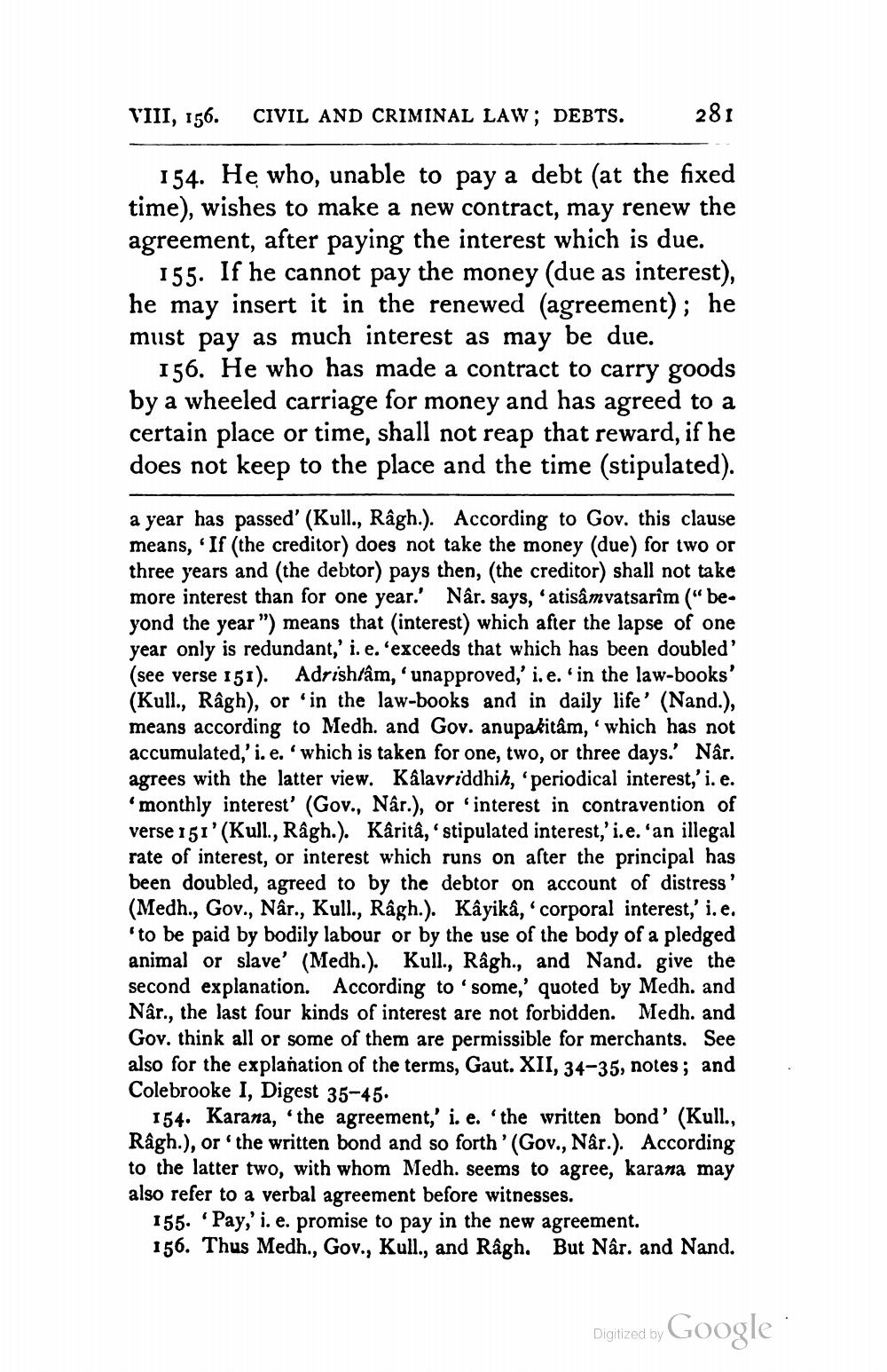________________
VIII, 156.
CIVIL AND CRIMINAL LAW; DEBTS.
281
154. He who, unable to pay a debt (at the fixed time), wishes to make a new contract, may renew the agreement, after paying the interest which is due.
155. If he cannot pay the money (due as interest), he may insert it in the renewed (agreement); he must pay as much interest as may be due.
156. He who has made a contract to carry goods by a wheeled carriage for money and has agreed to a certain place or time, shall not reap that reward, if he does not keep to the place and the time (stipulated).
a year has passed' (Kull., Râgh.). According to Gov, this clause means, If (the creditor) does not take the money (due) for two or three years and the debtor) pays then, the creditor) shall not take more interest than for one year.' Nâr. says, 'atisâmvatsarîm (“be. yond the year ") means that interest) which after the lapse of one year only is redundant,' i. e. 'exceeds that which has been doubled' (see verse 151). Adrishtâm, 'unapproved,' i.e. in the law-books' (Kull., Râgh), or 'in the law-books and in daily life' (Nand.), means according to Medh. and Gov. anupakitâm, which has not accumulated,'i.e. 'which is taken for one, two, or three days.' Nâr. agrees with the latter view. Kalavriddhih, periodical interest,'i.e. 'monthly interest' (Gov., Nár.), or 'interest in contravention of verse 151' (Kull., Ragh.). Käritâ, stipulated interest, i.e. an illegal rate of interest, or interest which runs on after the principal has been doubled, agreed to by the debtor on account of distress' (Medh., Gov., Nâr., Kull., Râgh.). Kâyikâ, corporal interest,' i.e. 'to be paid by bodily labour or by the use of the body of a pledged animal or slave' (Medh.). Kull., Râgh., and Nand. give the second explanation. According to 'some,' quoted by Medh. and Nâr., the last four kinds of interest are not forbidden. Medh. and Gov. think all or some of them are permissible for merchants. See also for the explanation of the terms, Gaut. XII, 34-35, notes; and Colebrooke I, Digest 35-45.
154. Karana, 'the agreement,' i. e. 'the written bond' (Kull., Râgh.), or the written bond and so forth'(Gov., Nár.). According to the latter two, with whom Medh. seems to agree, karana may also refer to a verbal agreement before witnesses.
155. Pay,' i. e. promise to pay in the new agreement. 156. Thus Medh., Gov., Kull., and Râgh. But När. and Nand.
Digitized by Google




